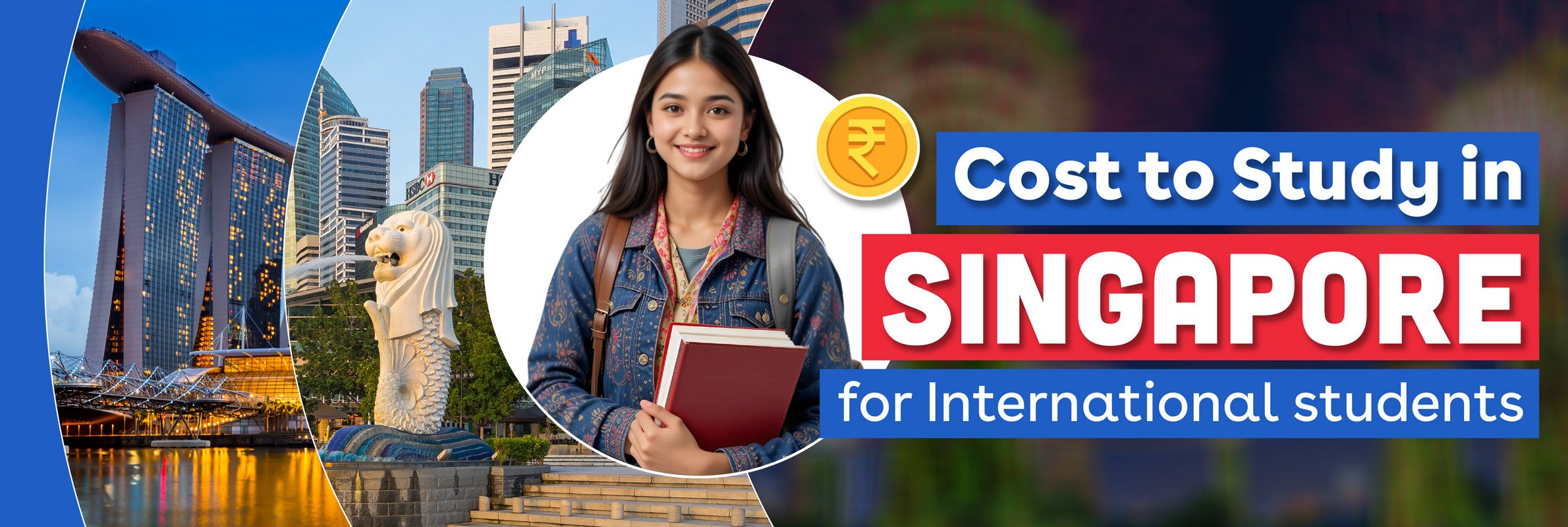A dynamic Southeast Asian nation and a leading financial hub, Singapore is globally renowned for its higher education. This top Asian study destination offers world-class education, a multicultural environment, and promising job prospects. With prestigious national institutions topping the QS World University Rankings and several foreign university campuses, Singapore provides quality education at a relatively economical cost compared to other leading study destinations.
When planning to study abroad, the first concern is often the cost. Understanding Singapore’s financial aspects requires thorough research, covering both pre-arrival and post-arrival expenses. To save you time, here’s a detailed guide on the cost to study in Singapore, covering all essential financial aspects for international students.
Table of Content:
